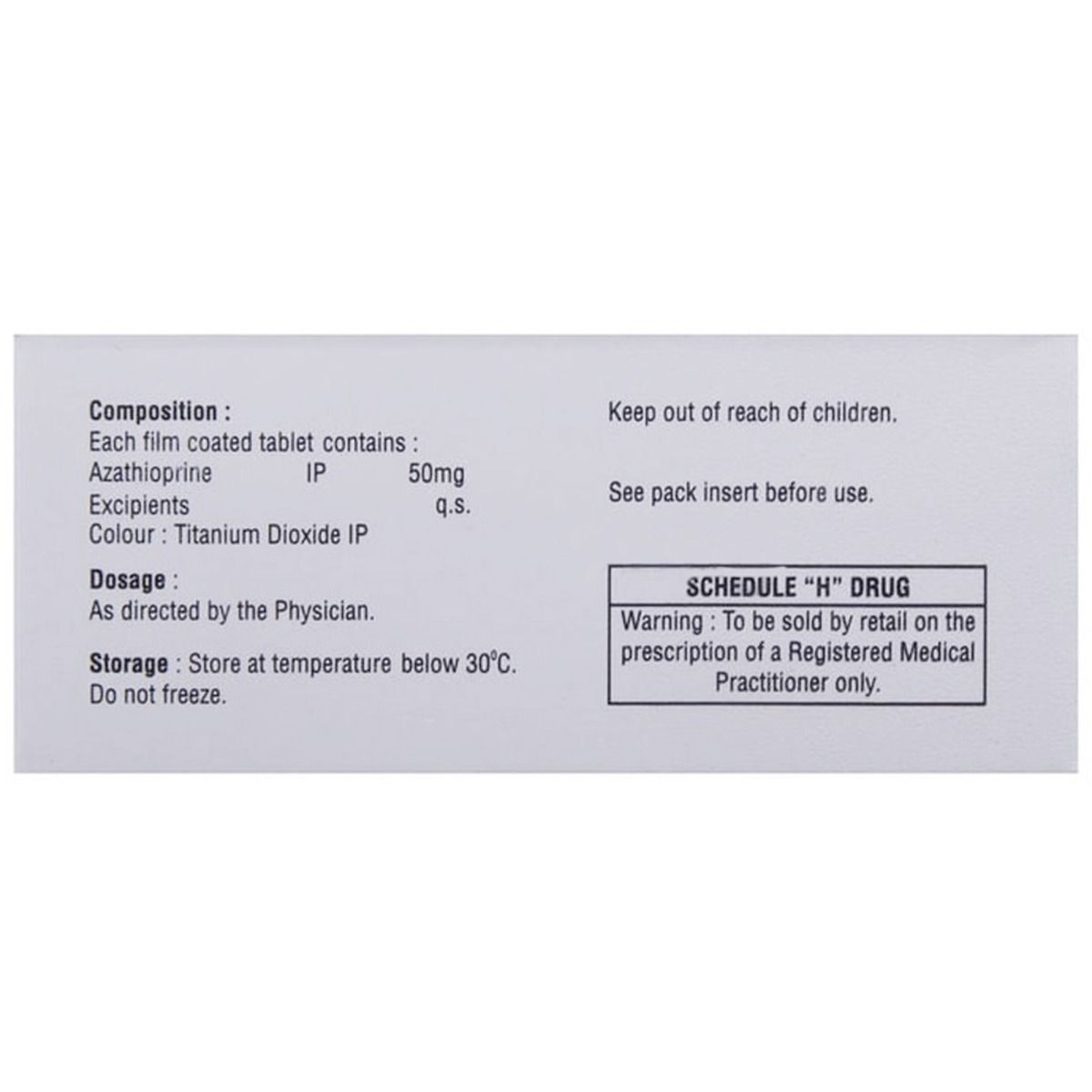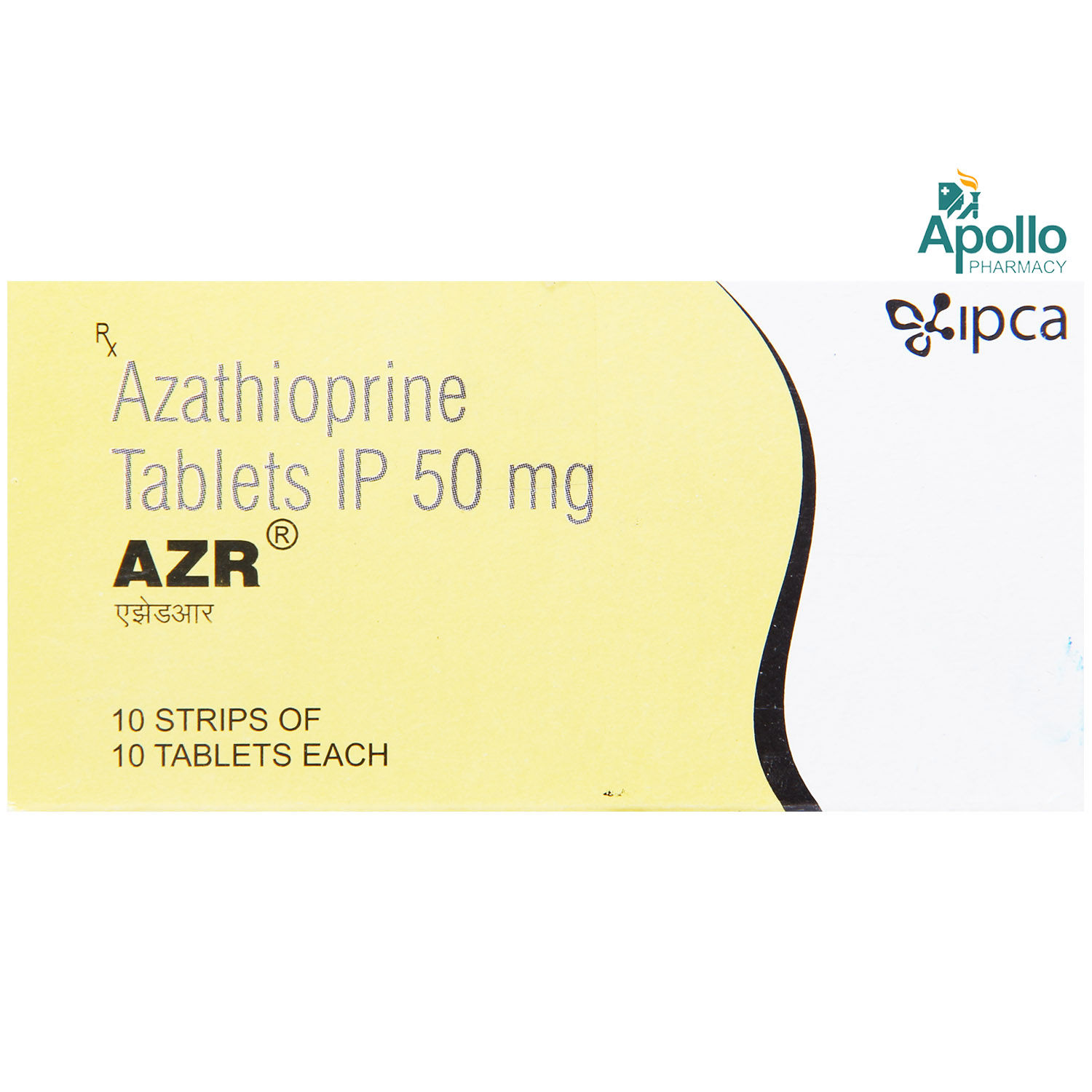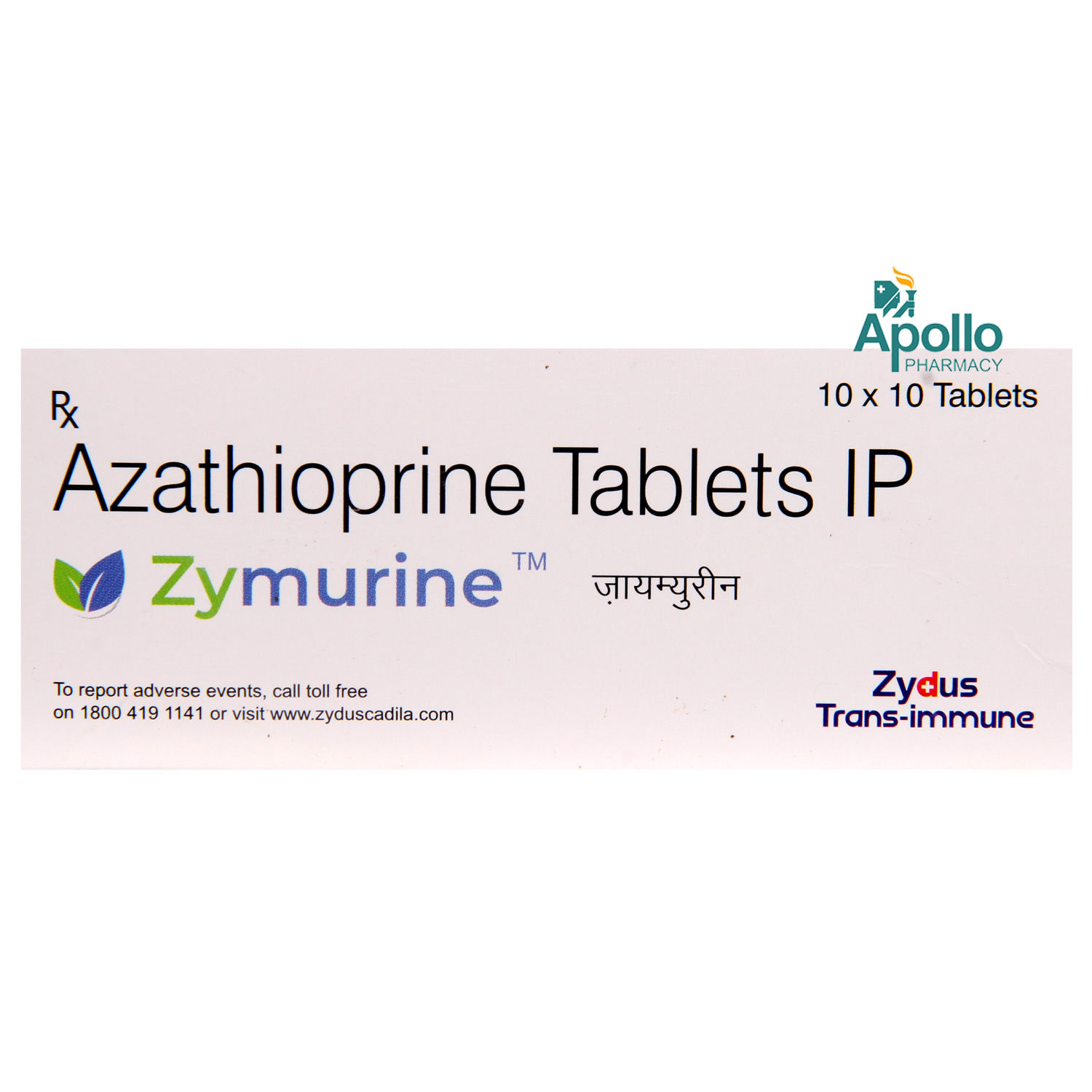Imoprine Tablet 10's
₹108*
MRP ₹120
10% off
₹102*
MRP ₹120
15% CB
₹18 cashback(15%)
Free Delivery
With Circle membership
(Inclusive of all Taxes)
This offer price is valid on orders above ₹800. Apply coupon PHARMA10/PHARMA18 (excluding restricted items)
Know Your Delivery Time
Provide Delivery Location


Whats That

Secure Payment

India's Most Trusted Pharmacy

Genuine Products
Composition :
Manufacturer/Marketer :
Consume Type :
Return Policy :
Expires on or after :
About Imoprine Tablet
Imoprine Tablet is used to reduce the pain/inflammation in rheumatoid arthritis conditions and keep the immune system from attacking new transplant organs like kidneys. Besides this, it also treats pain and inflammation in gastrointestinal issues like Crohn's disease and ulcerative colitis for patients who have undergone a kidney transplant.
Imoprine Tablet contains 'Azathioprine' that works by reducing the function of the cells, causing inflammation, especially in the joint tissues, thereby decreasing pain and inflammation and slowing down the joint damage and disease progression over time. Besides this, after an organ transplant, your body will try to attack the new organ as it sees it as foreign. Imoprine Tablet helps stop your body from rejecting a new organ by suppressing your immune system.
Take Imoprine Tablet as prescribed. Your doctor will advise you on how often you take Imoprine Tablet based on your medical condition. In some cases, you may experience certain common side-effects such as nausea, headaches, vomiting, diarrhoea, unusual fatigue, dizziness, headache, loss of appetite, increase in liver enzymes, lowered resistance to infections, tingling sensation, stomach pain, leukopenia (decreased number of white blood cells), and sore throat. Most of these side effects do not require medical attention and will resolve gradually over time. However, you are advised to talk to your doctor if you experience these side effects persistently.
To treat your condition effectually, continue taking Imoprine Tablet for as long as your doctor has prescribed. To avoid recurring symptoms, do not stop it midway. Do not take Imoprine Tablet if you are pregnant or planning for pregnancy. Imoprine Tablet should not be taken by breastfeeding mothers as it passes into breast milk. Imoprine Tablet should not be given to children as safety and efficacy have not been established. Imoprine Tablet may make you more susceptible to infections; consult your doctor if you develop any signs of severe conditions such as fever, sore throat, breathlessness, jaundice, unexplained bleeding, or bruising. Avoid excessive exposure to sunlight, wear protective clothing, and use protective sunscreen with a high protection factor while using Imoprine Tablet . While taking Imoprine Tablet , do not contact anyone who has shingles, chickenpox, or measles. If you accidentally come in contact with any person who has them, please inform your doctor immediately, as special treatment is required if you have not had these illnesses. Your doctor may advise you to undergo regular blood tests and kidney and liver tests to monitor your condition. Inform your doctor about your health condition and medicines to rule out any unpleasant side effects.
Uses of Imoprine Tablet
Medicinal Benefits
Imoprine Tablet contains 'Azathioprine', which is an immunosuppressant that works by reducing the function of the cells and causing inflammation in the joint tissues. It reduces pain and inflammation and slows joint damage and disease progression over time. Besides this, after an organ transplant, your body will try to attack the new organ as it sees it as foreign. Imoprine Tablet helps stop your body from rejecting a new organ by suppressing your immune system. Imoprine Tablet is also used to treat severe inflammatory diseases of the skin, Crohn's disease, ulcerative colitis, and some blood disorders.
Side Effects of Imoprine Tablet
- Nausea
- Headaches
- Vomiting
- Diarrhoea
- Unusual fatigue
- Dizziness
- Headache
- Loss of appetite
- Increase in liver enzymes
- Lowered resistance to infections
- Tingling sensation
- Stomach pain
- Leukopenia (decreased number of white blood cells)
- Sore throat
Directions for Use
Storage
Drug Warnings
Do not take Imoprine Tablet if you are allergic to any immunosuppressant medicines or Azathioprine. Let your doctor know before using Imoprine Tablet if you have liver or kidney problems, serious blood disorders, immune system problems, bone marrow problems, serious infections, immunodeficiency syndrome, or if you have a condition where your body produces too little of a natural chemical called thiopurine methyltransferase (TPMT), received any vaccinations. Do not take Imoprine Tablet if you are pregnant or planning for pregnancy as Imoprine Tablet is a Pregnancy category risk D medicines which can cause serious congenital disabilities to the unborn baby. Imoprine Tablet should not be taken by breastfeeding mothers as it passes into breast milk. While taking Imoprine Tablet , do not contact anyone who has shingles, chickenpox, or measles. If you accidentally come in contact with any person having them, please inform your doctor immediately as it requires special treatment if you have not had these illnesses. Imoprine Tablet causes dizziness and drowsiness, so drive with caution. Imoprine Tablet should not be given to children as safety and efficacy have not been established. Avoid consuming alcohol along with Imoprine Tablet as it could lead to increased dizziness. Your doctor may advise you to undergo regular blood tests, kidney and liver tests to monitor your condition. Using Imoprine Tablet for a long time can increase your chance of getting certain types of cancer, such as lymphoma (cancer of the spleen, thymus gland, and bone marrow), leukemia (blood cancer), and skin cancer. Avoid excessive exposure to sunlight, wear protective clothing, and use protective sunscreen with a high protection factor while using Imoprine Tablet .
Therapeutic Class
Drug-Drug Interactions
Drug-Food Interactions
Diet & Lifestyle Advise
Physical activity helps in strengthening muscles and relieves joint stiffness. Gentle activities like 20-30minutes of walking or swimming would be helpful.
Performing yoga may also help in improving joint flexibility and pain management.
Maintain a healthy weight by performing regular low-strain exercises and eating healthy food.
Get adequate sleep as resting the muscles can help in reducing inflammation and swelling.
Follow heat or cold therapy, apply a cold or hot compress on the joints for 15-20minutes regularly.
De-stress yourself by meditating, reading books, taking a warm bubble bath, or listen to soothing music.
Acupuncture, massage, and physical therapy may also be helpful.
Eat food rich in antioxidants such as berries, spinach, kidney beans, dark chocolate, etc.
Foods containing flavonoids help in reducing inflammation. These include soy, berries, broccoli, grapes, and green tea.
Avoid smoking and alcohol consumption.
Habit Forming
How Imoprine Tablet Works
What if I have taken an overdose of Imoprine Tablet
Alcohol
Caution
You are recommended to avoid alcohol consumption while taking Imoprine Tablet . It could lead to increased dizziness and drowsiness.
Pregnancy
Caution
Imoprine Tablet is a Category D pregnancy drug that is not recommended for pregnant women or given only when strictly guidance of the doctor as there is no clinical data available on use in pregnant women.
Breast Feeding
Caution
It is not recommended to take Imoprine Tablet while you are breastfeeding. Imoprine Tablet passes into breast milk.
Driving
Caution
Imoprine Tablet may cause dizziness, drowsiness, and tiredness; do not drive or operate heavy machinery if you feel dizzy.
Liver
Caution
Take Imoprine Tablet only after the doctor's prescription, especially if you are dealing with Liver diseases/conditions as your doctor may adjust the dose as required.
Kidney
Caution
Please consult your doctor if you have kidney impairment before taking Imoprine Tablet .
Children
Unsafe
Imoprine Tablet should not be used by children below 18 years of age, as the efficacy and safety have not been established.
Country of origin
Manufacturer/Marketer address
Author Details
We provide you with authentic, trustworthy and relevant information
FAQs
Disclaimer
Product Substitutes



















